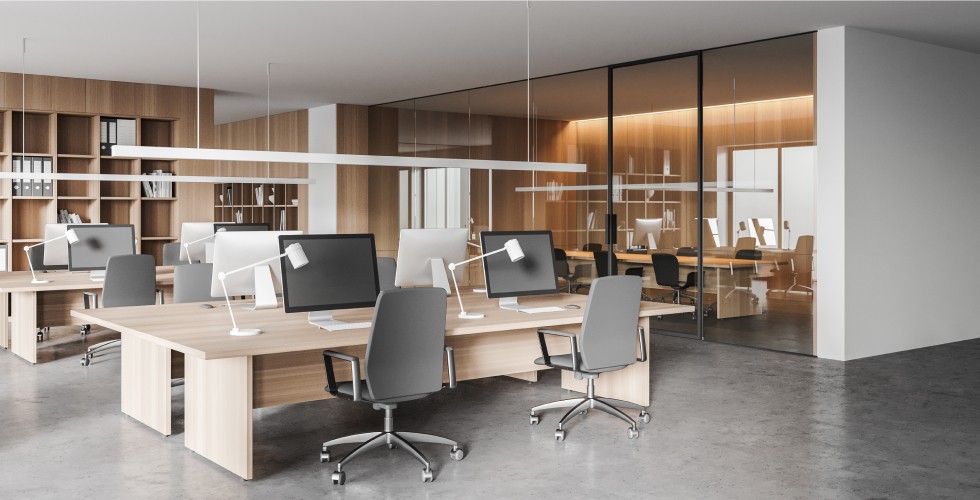A well-designed office desk isn’t just a functional piece of office furniture – it plays a significant role in influencing employee focus, productivity, and overall mental well-being. The psychology of workspace design, particularly when it comes to the desk setup, is a fascinating subject that reveals how environment and organisation affect performance. Understanding the psychological effects of office desks can help create an environment that fosters concentration, creativity, and a positive work experience.
The Power of Personalisation
One of the key psychological factors influencing focus at the office is personalisation. Employees who are allowed to personalise their workspace tend to feel more ownership and pride in their work. A simple decoration, a photo of loved ones, or a plant can transform a generic desk into a space that feels comfortable and motivating. This sense of control over their environment can have a direct impact on how engaged and productive employees feel.
Research has shown that employees who personalise their workspaces experience less stress and greater job satisfaction. The act of making a workspace feel personal can help employees feel more connected to their tasks, which boosts focus and mental clarity.
The Role of Ergonomics in Focus
Ergonomics plays a pivotal role in the psychology of office desks. When employees sit or stand at desks that are poorly designed or uncomfortable, they may experience physical discomfort that distracts from their work. This physical strain can lead to stress and a lack of concentration, as the body tries to manage the discomfort rather than focus on the task at hand.
Quality office furniture, such as ergonomic chairs and adjustable desks, ensures that employees can maintain good posture and comfort throughout the day. This helps to reduce physical fatigue, allowing them to stay focused on their work for longer periods. Ergonomically designed desks that cater to the specific needs of the individual employee, such as height-adjustable features, can make a significant difference in reducing discomfort and enhancing focus.
Organisation and Clutter: The Psychological Impact
Cluttered office desks are more than just a nuisance; they can negatively impact cognitive function. Studies have shown that excessive clutter can create feelings of overwhelm and stress, which in turn, reduce an employee’s ability to focus. When an employee’s desk is disorganised, their mind may also feel cluttered, making it harder to focus on individual tasks.
Organised desks, on the other hand, promote clarity and a sense of control. Employees who maintain tidy workspaces are often better at managing tasks and prioritising effectively. Simple organisational tools like desk organisers, filing systems, and cable management solutions can help employees keep their workspace clear, which promotes a calm, focused mindset.
The Importance of Lighting and Colour
The psychological effects of lighting and colour in an office environment are well-documented. Natural light is ideal for promoting a positive, focused atmosphere, as it helps regulate circadian rhythms and boosts mood. Studies suggest that exposure to natural light increases productivity and improves focus, while artificial lighting can lead to eye strain and fatigue.
When it comes to colour, different hues have varying effects on mood and concentration. Blue, for instance, is known to promote calm and focus, making it an excellent choice for workspaces. Green, associated with nature, is calming and can also enhance creativity. On the other hand, bright colours like red or yellow can stimulate energy and focus, but may also be overwhelming in large doses. A balanced approach to colour in office furniture and decor can influence employee focus and well-being.
Distractions and the Environment
A well-designed office desk is not just about comfort and aesthetics; it also plays a crucial role in reducing distractions. In open-plan offices, the environment can often be noisy and chaotic, leading to difficulty concentrating. A desk that provides a sense of privacy and separation from the noise of the office can help employees stay focused.
For example, desk dividers or strategically placed partitions can create a sense of personal space, which can be crucial for maintaining concentration in a shared environment. Adding noise-cancelling headphones or incorporating soft furnishings into the office design can further help to reduce distractions, creating an environment conducive to focus.
The Impact of Office Furniture on Mental Well-being
The type and arrangement of office furniture also have a significant impact on employee mental well-being. A well-arranged desk that supports the tasks at hand can reduce mental strain, helping employees to focus better. Additionally, comfortable seating, proper desk height, and adjustable features help employees feel physically at ease, which is crucial for maintaining mental focus.
Providing employees with high-quality office furniture that meets their ergonomic needs and personal preferences not only improves productivity but also contributes to their overall mental well-being. When employees feel that their needs are met, both physically and mentally, they are more likely to feel motivated and focused on their work.
Space for Movement and Flexibility
In addition to comfort and organisation, the flexibility of a workspace can also enhance focus. Allowing employees to move around, switch between sitting and standing, or rearrange their desk setup to suit their needs can have positive psychological effects. Flexibility encourages employees to take breaks, adjust their environment to their comfort level, and feel in control of their workspace.
Standing desks, for instance, can promote better posture and reduce the physical strain that comes from sitting for long periods. Providing employees with the option to move or adjust their workstations gives them the autonomy to tailor their workspace to their needs, which in turn boosts focus and productivity.
How Office Desks Can Promote a Healthy Work-Life Balance
Finally, office desks that promote a healthy work-life balance can positively affect focus. A workstation that encourages breaks, relaxation, and a separation between work and personal life can help employees maintain their mental health. Simple additions like comfortable seating for breaks, or spaces for personal items, can create a sense of balance and relaxation.
When employees have a clear distinction between work and personal time, they are more likely to stay focused and productive during work hours. Encouraging employees to maintain a balanced, well-organised workspace helps them manage stress and focus better on their tasks.
Conclusion
The psychology behind office desks and their impact on employee focus is clear: a thoughtfully designed workspace can significantly enhance productivity, creativity, and mental well-being. By considering factors such as personalisation, ergonomics, organisation, and lighting, companies can create workstations that support focus and help employees perform at their best. With the right office furniture and accessories, businesses can foster a work environment that not only boosts productivity but also promotes a healthier, more balanced approach to work.


